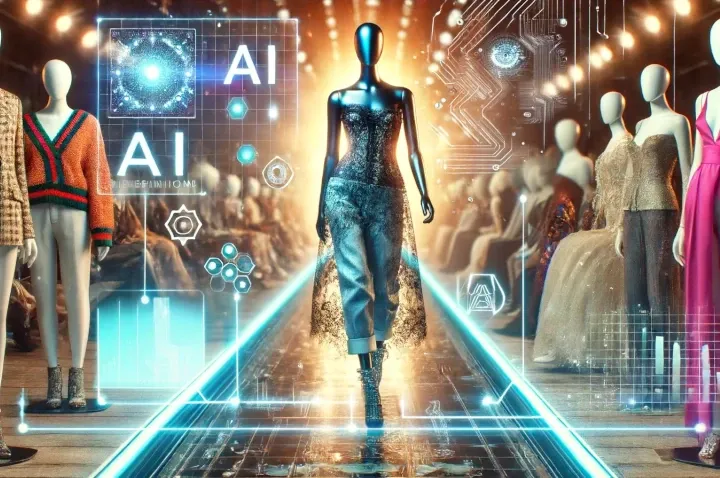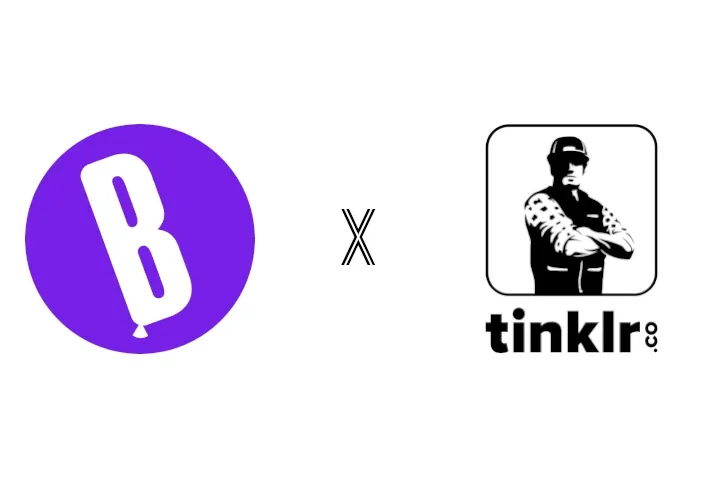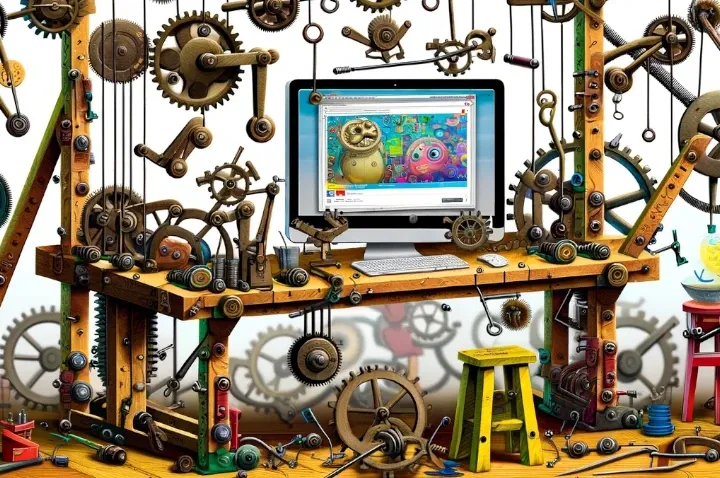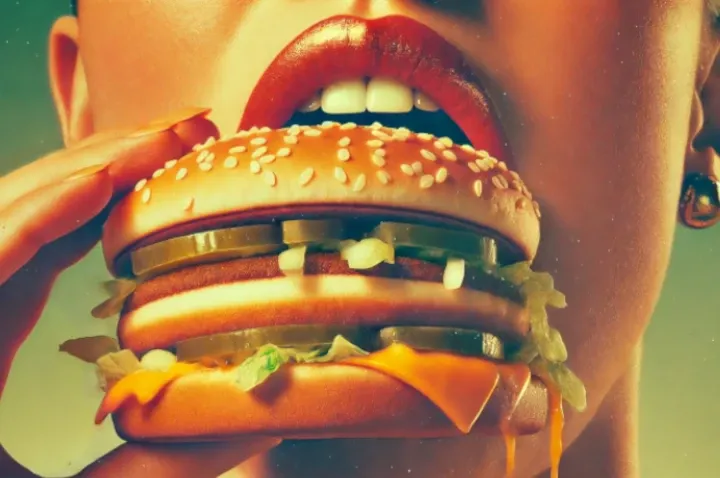High fAshIon: Discover How Luxury Brands are Embracing Tech and 3 Ways to Steal Their Style
Driven by innovation, luxury fashion houses blend tradition with technology. Brands like Gucci, Chanel, and Louis Vuitton leverage AI to redefine exclusivity and craftsmanship. Discover how these iconic names use AI in their creative processes and learn three ways you can emulate their success.

In an era where innovation drives industries forward, even the most time-honored luxury fashion houses are weaving the sharp precision of artificial intelligence (AI) into their design and business strategies. From runways to retail, high fashion is embracing technology to redefine the essence of exclusivity and craftsmanship. Iconic brands like Gucci, Chanel, and Louis Vuitton are not just following trends; they are setting them by integrating AI into their creative processes and operational frameworks.
At Balloonary, we love the potential generative AI can have on democratizing creativity and efficiency, empowering smaller businesses to harness the same powerful tools as industry giants.
While the technological advancements made by high fashion might seem out of reach, the principles behind their success are accessible to businesses of all sizes. Below are three of our favorite ways, the most prominent designers are using AI – and how you can copy their style…
How Luxury Brands Are Leading with AI
1. Gucci: Redefines creativity and efficiency with AI-driven design and pattern recognition:
Gucci uses AI to analyze a wealth of data from social media, sales, and fashion shows, gaining insights into consumer preferences and emerging trends. This data-driven approach allows Gucci's designers to create patterns and styles that resonate deeply with their audience. The ability to predict what will captivate their consumers ensures that each new collection is both innovative and aligned with market demands.
2. Chanel: Blends traditional craftsmanship and technology by using AI in textile development:
Chanel collaborates with tech companies and startups to integrate AI into their textile manufacturing process. By using AI algorithms, Chanel can predict the performance of new fabrics and materials, ensuring they align with the brand's luxurious standards. This integration allows for the development of innovative textiles that are both high-quality and durable, maintaining Chanel’s reputation for excellence.
3. Louis Vuitton: Uses AI for material innovation and sustainability:
When it comes to fabric selection, Louis Vuitton employs AI to evaluate the performance and sustainability of new materials. AI models assess the aesthetic qualities and durability of fabrics, aiding in the creation of materials that meet Louis Vuitton’s luxury standards.
Additionally, AI is used to optimize fabric usage, minimizing waste through efficient pattern-cutting algorithms, contributing to the brand’s sustainability efforts.
How Smaller Businesses Can Copy Their Style
High fashion's use of AI might seem daunting, but smaller businesses can apply similar strategies on a scalable level. Here’s how:
1. Trend analysis with AI tools:
Any small business can use accessible AI-powered analytics tools to monitor social media trends, customer feedback, and market data. Platforms like Google Trends or social listening tools can provide valuable insights into consumer behavior, helping businesses anticipate what may be popular and align their offerings accordingly.
2. AI for efficient production:
There are plenty of accessible AI solutions out there for businesses to help optimize production processes. If you too are in fashion, then you might use tools like automated pattern-cutting software. But for everyone else, there are several simple AI applications that help streamline operations, enhance product quality, or support you in ensuring that your business runs more efficiently and smoothly.
What is important is that you look at the tasks that you do recurrently and ask yourself if there could be an AI tool to easily do that for you instead?
For example, you might want to try Balloonary to support and simplify your online ad creation process. By leveraging AI technology, Balloonary streamlines tasks such as keyword selection, ad copy generation, and audience targeting, enabling users to create custom ads for platforms like Facebook and Google Ads with ease.
3. Personalized customer experiences:
You can also implement AI-driven recommendation engines on your website to offer personalized shopping experiences. Tools like Shopify have AI capabilities or personalized email marketing solutions, which can analyze customer data to suggest products that match individual preferences, boosting engagement and sales.
The fusion of AI and luxury fashion proves the limitless possibilities when tradition meets technology. Brands like Gucci, Chanel, and Louis Vuitton are not only preserving their heritage but also setting new standards for innovation and excellence. For smaller businesses, adopting these AI-driven strategies can lead to significant gains in creativity, efficiency, and customer satisfaction. By harnessing the power of AI, any business can aspire to the sophistication and success of these high-fashion leaders.

Trademark Disclaimer
All trademarks and brand names are the property of their respective owners. All company, product and service names used in this post are for identification purposes only. Use of these names, trademarks and brands does not imply endorsement.




